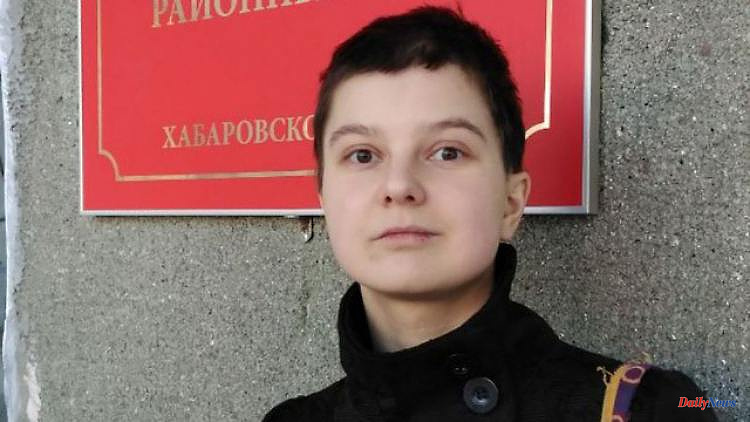For three years, the artist and LGBTIQ activist Julia Tsvetkova has been fighting against being sent to a labor camp in Russia. The indictment accuses her of pornography because she had painted female genitals. Now the 29-year-old wins in court.
According to a court in the east of the country, the Russian artist Julia Zwetkowa has been acquitted of the charge of distributing pornography. "A process that has been going on for three years has ended with a victory for the defense," said the 29-year-old on Telegram. At the same time, she restricted: "It is clear that this is not final." The public prosecutor's office has ten days to appeal against the verdict of the court in Komsomolsk-on-Amur.
The prosecution had requested three years and two months in prison because the artist and activist had painted female genitals. Tsvetkova, who said she had her bag for the prison with her, appeared in a photo with her lawyer in the big city in Russia's Far East. "A great team," she wrote. There were no further comments, it said after the closed-door proceedings. The feminist faced a maximum of six years in prison in the criminal proceedings, which international human rights organizations criticized as arbitrariness.
The well-known activist has been receiving fines in Russia for years because she paints same-sex couples with rainbow motifs. And she receives mass death threats, as she said before the trial began. Like many art experts who refer to paintings by great masters of naked women in museums around the world, Tsvetkova does not see her drawings as pornography.
The activist from the Khabarovsk region is also known nationally for her commitment to the rights of gay, lesbian, bisexual, transgender, intersex and queer people (LGBTIQ). There is a lot of hatred against her and her mother, she once said. "It's hard to bear. There are threats of shooting or burning us."
The human rights organizations Memorial and Amnesty International have put Yulia Tsvetkova on the list of those who have been politically persecuted. The process has been running since November 2019. She had to spend around four months in house arrest before she was allowed to leave the apartment on condition that she did not leave the city. At the start of the trial last year, Tsvetkowa went on a temporary hunger strike.












